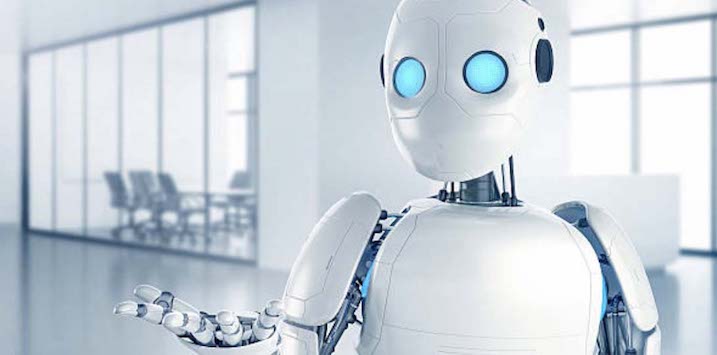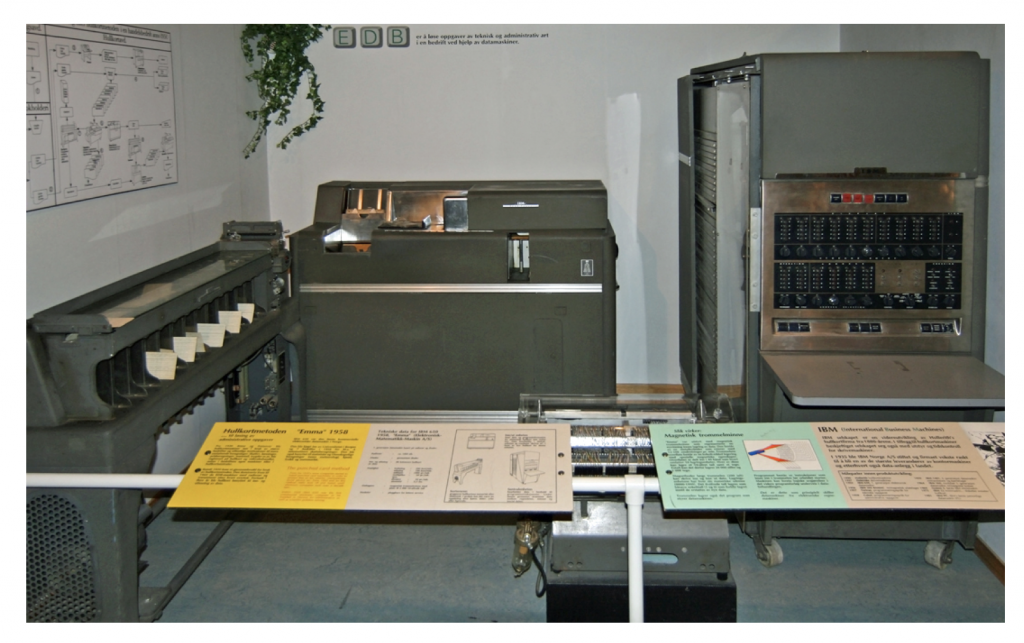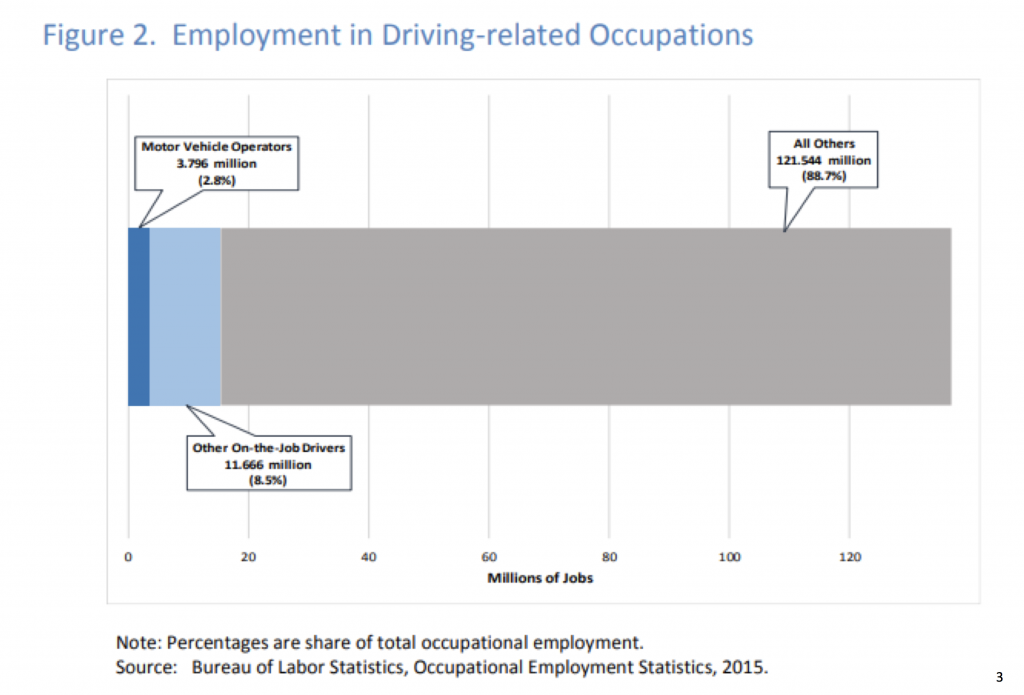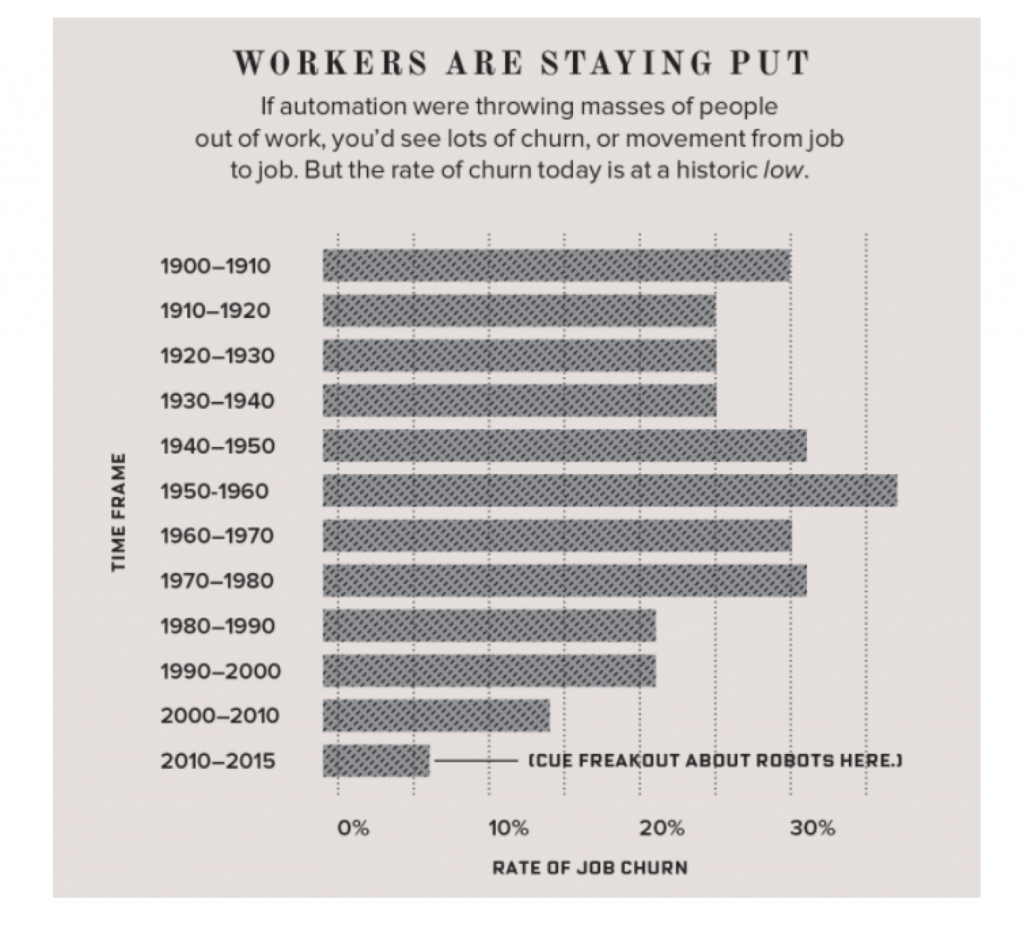
They took our jobs
“Whatever your job is, the chances are that one of these machines can do it faster or better than you can.” Sound familiar? It’s from a tabloid (the Daily Mirror) back in 1955. This was first instance where the media headlines fuelled fears that artificial intelligence (a term coined by mathematician John McCarthy), would lead to mass unemployment.
Back when computers were less powerful than today’s average calculator and looked a bit like this:
Driverless cars, robots doing your cooking, robo-advisers… with all the incoming automation, it’s no wonder the media loves highlighting the potential loss of jobs to computers. But have we not been here before? Will we really all be replaced by machines in the next couple of decades? Whilst we should never say never, let’s take a more objective look at where we are.
Did machines take over? Is it happening again now?
Simplistically, as innovation accelerates, thousands of jobs will disappear, just as it has happened in the previous cycles of industrial revolutions.[1] However it’s not a zero-sum game, and whilst many jobs will be destroyed, new ones will be created. Looking myopically at the direct job losses can ignore second and third order effects.
Let’s take an example. In the 1980’s and 90’s ATM’s spread and many predicted mass unemployment in the banking sector. However, the opposite was seen. Why? The cost of opening new agencies dropped and significantly more agencies were opened, a larger portfolio of banking products were offered and new jobs were created. The net effect actually increased the overall quality of life of most workers.
To me this analogy has many parallels to driverless cars. The American trucking association estimates that there are 3.5 million professional truck drivers in the United States.[2] So rightly, there is concern about unemployment from these roles becoming automated. This is a huge first order effect – but not the whole picture.
We can already see second order impacts with new jobs being created. There has been plenty of job creation in both software and hardware for autonomous vehicles. Looking ahead, we will need new laws and regulations to accommodate the changing landscape, this require more legal jobs. As a specific example, McKinsey predicts the car data industry could be worth as much as $750 million by 2030[4].
Things get even more interesting in the third order effects. No need for driving creates a new window of time during transit. This will lead to innovations for time-usage on-the-road. This will create both entertainment and advertising opportunities and new employment – the exact specifics of which are hard to imagine today.
But aren’t we already seeing AI take over jobs?
Interestingly, we aren’t. Let us assume for the moment that automation is transforming the US economy. We would expect to see two things (1) aggregate productivity rising sharply (as technology improves productivity) (2) jobs being harder to come by than before (as people are displaced). Neither of these are true. [5]
Labour productivity is in fact very muted. Since 2007 it has grown at a rate of 1.2 per cent, this compares to 3 per cent in 1947-1973. In fact, over the past couple of years it has been growing at a stifled 0.6 per cent. Furthermore, a recent paper by Robert Atkinson and John Wu of the Information Technology and Innovation Foundation concludes that “Levels of occupational churn in the United States are now at historic lows.” – 38 per cent what it was between 1950-2000. Tenure has lengthened since 2000.
There is no doubt that artificial intelligence will make certain roles redundant. However, that’s not to say it won’t create new opportunities and different jobs as well. “The central phenomenon is not net job loss. It’s the shift in the kinds of jobs that are available.” [6]
[2] Source: http://www.alltrucking.com/faq/truck-drivers-in-the-usa/
[3] Source: http://www.esa.doc.gov/sites/default/files/Employment%20Impact%20Autonomous%20Vehicles_0.pdf
[4] Source: https://www.wired.com/2017/06/impact-of-autonomous-vehicles/
[5] Source: https://www.wired.com/2017/08/robots-will-not-take-your-job/
[6] Source: https://www.wired.com/2017/08/robots-will-not-take-your-job/
This post was contributed by a representative of Montgomery Investment Management Pty Limited (AFSL No. 354564). The principal purpose of this post is to provide factual information and not provide financial product advice. Additionally, the information provided is not intended to provide any recommendation or opinion about any financial product. Any commentary and statements of opinion however may contain general advice only that is prepared without taking into account your personal objectives, financial circumstances or needs. Because of this, before acting on any of the information provided, you should always consider its appropriateness in light of your personal objectives, financial circumstances and needs and should consider seeking independent advice from a financial advisor if necessary before making any decisions. This post specifically excludes personal advice.
INVEST WITH MONTGOMERY


nice article Lisa, thanks
The Luddites Among Us
Certain economic ideas that are both logically wrong and unsupported by historical facts, and which have been known to be wrong for 250 years, are still widely held. This annoys economists.
There is something that seems inherent in men’s approach to thinking about their own wealth that persuades them that what they have seen, over and over, in nation after nation, either did not happen, or, if it clearly did happen, will not continue.
THE LUDDITE MENTALITY
There is another error, comparable to the error of the pro-sales tax non-economists, which is also widely held. This is the belief that machinery makes workers poorer. It is usually described as the Luddite philosophy. A man named Ned Ludd (or Lud) supposedly broke knitting machines in a fit of rage in 1779. In 1811, an article on Ludd was published in a newspaper. When people then began destroying machinery, they were called Luddites.
https://www.lewrockwell.com/2013/02/gary-north/the-luddites-among-us/
Thank you, I never knew the knitting machine backstory – thank you for sharing!
that may be true Lisa , but I was talking about under-employment. I am sceptical about unemployment figures
quality of life may improve but if the industrial revolution is an example the social disruption will be intense and may last a life time
Under-employment is an interesting argument, however is a lot harder to get hard data about.
no one is considering this -the population is expected to reach 10 billion by 2050 (thats 50% higher than now in 2018) -so the population is increasing and the jobs are decreasing both greatly over the next 30 years due to robots, AI and massive quantum leaps in technology (heard of moores law?>-
so tell me how is it going to be ‘all OK ?”
there is already massive under-employment in every western civilization and massive overpopulation in every 3rd world country so multiply the negative effects by 5x every 10 years
Remember the 80s and the concept of ‘the paperless office’ ? Computers were going to do all that for us….
If your comment had a like button I would have clicked it (or would AI have done that for me?)
I don’t think it is a question anymore of whether an AI can take over ANY job.
I include those jobs that most think are now safe e.g. service related & health related jobs
As of 2018 we are still ~ 30 years from AI & robotics being able to do ALL jobs. (see aiimpacts.org for estimates by professionals involved in the area)
For those that don’t believe me I offer a simple example of the games chess & (much harder) GO recently mastered by the self-taught program alphazero (DeepMind) that after a few hours discovered new plays that 1000’s of years of human play (by geniuses along the way) did not! Even more impressive is the Libratus program that beat the best human poker players!
Whist the transition is likely to occur over a 50-100 year period – there will be significant (nay HUGE, MASSIVE) resistance e.g. people refusing to give up their licenses for self-driving alternative, politicians/public refusing to allow AI to govern etc
The much larger problem to be faced by governments is how will we, as a society, transition from one which is fully employed to one where jobs are performed by machines? Will universal income become the norm or will economic structures change so significantly that all current systems will be redundant?
In the immediate future, is the team @ RogerMontgomery investing in AI technology like that in AlphaZero & Libratus to outperform the index? How is it planning to compete with other investment firms which are looking at adopting such technologies?
Some very interesting points there – really enjoyed reading some of the scientific papers on that website and completely agree it was unprecedented seeing the AlphaGo victory.
There’s a lot of work going on for what is not auto-mateable/ what defines “human level artificial intelligence”.
On universal income – that’s certainly a pertinent topic of debate in Silicon Valley.
Hi Joe, have a read of this post: https://rogermontgomery.com/ai-is-here-and-its-about-to-change-the-world/?r=true
The problem is not so much the idea that the decline of one industry will generate another – the trucking example. Truck drivers will not find jobs in designing software for transport etc – it is not going to happen.
The issue is that there is already huge amounts of underemployment and even worse most of those who are employed are doing jobs that are either useless or counter-productive. Banking is a pertinent example where many of the jobs have involved antisocial behaviour .
There are countless jobs that could be created for humans to do, the question is how to create jobs ,and train a workforce to do such jobs, that are for the common good. More teachers, carers etcetera. Sadly we have a long way to go.
Hi John,
Some interesting points there. I certainly agree that jobs are being created in different industries to those displaced by automation. Re-training those individuals is a real issue on which we indeed have a long way to go. However, displacement is not the only affect that these technologies will have. History and economics show us that increases in productivity add to overall quality of life and there are second (not least of which is reduced road casualties) and third order affects which are not necessarily negative.
In regards to employment – the US unemployment rate is at a 17-year low, I found this chart quite interesting: https://tradingeconomics.com/united-states/unemployment-rate